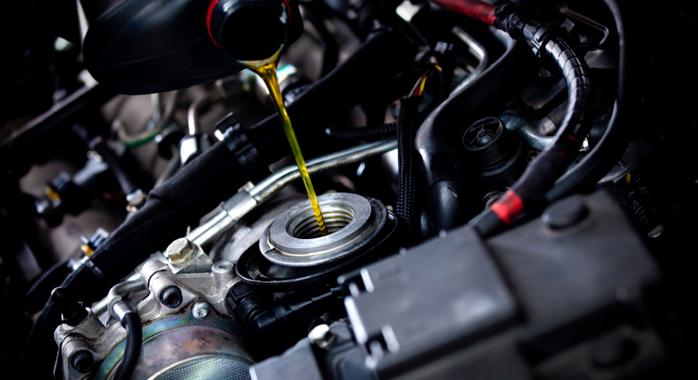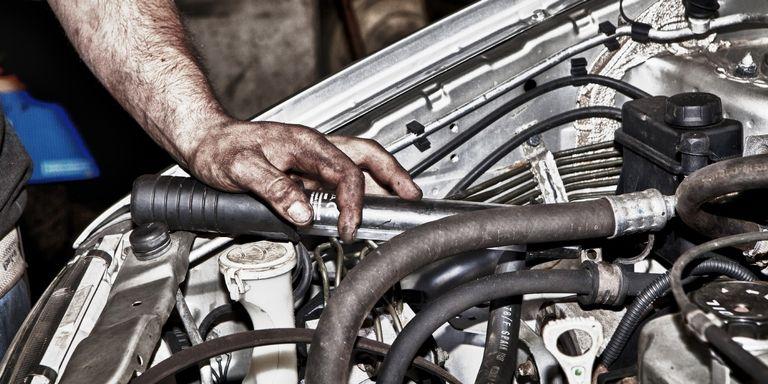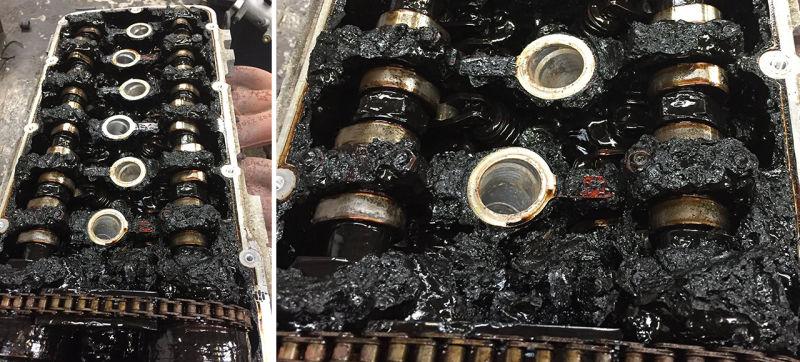What happens if you don’t change your oil? Well, the engine of a vehicle consists of lots of metal parts. These components rub and grate against each other when you drive the car. Without any lubrication, such metal-pressing-against-metal will make them wear off pretty quickly and damage the engine. The fuel greases all these parts and keeps the metal-on-metal friction to the minimal. This chain of events is hampered when you don’t change the oil year after year.
Contents
What Happens If You Don’t Change Your Oil? The Problems.
Every vehicle has a manufacturer-recommended oil changing period. You have to do it either after a certain time or crossing a specific mileage. The problems that can occur if you ignore the scheduled oil change are:

Dirt buildup
The regular use and the continuous friction leads to the buildup of dirt, metal particles, and soot. Most of these elements are so small that even the filter cannot catch them. As a result, the oil turns abrasive, accelerating the rate of engine wear.
On the other hand, even if the filter can catch them, it can do so only for the time being. At one point, it becomes so much clogged that no oil can get into the engine through it.
Fuel’s additives wear out
Your fuel, especially the synthetic version, has many additives that help with reducing frictions, inhibiting corrosions, and anti-foaming. When these wear out, the oil cannot do the functions it is intended to do.
Also, the viscosity modifiers of the fuel could break down too for not changing the oil for a long time. When this happens, the oil becomes thinner at high temperatures and cannot lubricate properly, resulting in more frictions.
SEE MORE:
- Why Does the Oil Pressure Light Comes On after an Oil Change?
- 5 Signs Warning You about an Oil Change
The engine will create loud sounds.
The anti-wear additives and the anti-oxidizing properties of the fuel break down over time. As a result, the oil collects sludge buildups and become heavy. That heavy oil cannot easily flow between the moving metal components. The frictions will create loud noises and the engine will be seriously damaged eventually.

The reduction of the engine compression is another possibility. If it happens, the engine will totally lose the power and won’t start. Remember that engine repair or replacement can take thousands of dollars.
The Steps You Should Take
You already know what happens if you don’t change your oil. So, how to avoid the ultimate – the failure of the engine? Well, the only solution is to change the oil on a regular basis. The best option is to follow the manufacturer’s recommended schedule. Changing oil will flush out all the abrasive materials and provide your engine the care it needs.
Remember that you don’t have to change the fuel at every 3,000 miles. It’s an old concept. With synthetic oil, you can drive a new car even 12,000 miles or more. Find out what’s best for your car or take advice from a trusted mechanic.




I have learnt alot
Thanks for the good advice. My question is, why is the engine jerks or shakes when you engage a gear on automatic vehicle? How often can you do wheel balancing and alignment?
Why is it that whenever it’s raining or I am washing my Toyota wish car water keeps on trekking inside through the sunroof compartment? It’s making the inside so wet oftentimes. Advise urgently.
What happens if you remove battery terminals in an automatic car?
Scary stuff,it could kill the engine..
for how long or how many years should i used acar made in 2003.the mileage